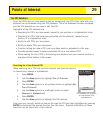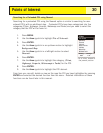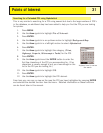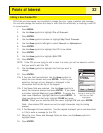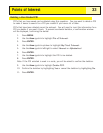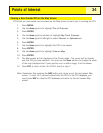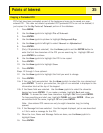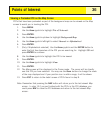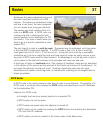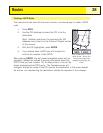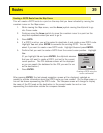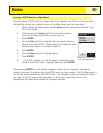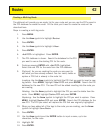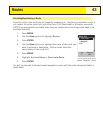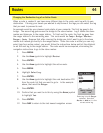
37
Routes are the least understood and one of
the most important functions of a GPS
receiver. The better you understand routes
and how to use them, the more enjoyment
you will receive from using your eXplorist.
The easiest, and most common form of a
route is a
GOTO route. A GOTO route is a
one-leg route with a starting point (your
present position) and a destination (a POI
you select). This route is useful when you
want to go to a specific preloaded or user-
entered POI.
The next type of a route is a
multi-leg route. The easiest way to understand multi-leg routes
is they are GOTO routes stuck together. If a GOTO route is from A to B then a multi-leg
route goes from A to B, B to C, C to D and so on. (Using the term multi-leg is somewhat
misleading as it can be a single leg route but these types of routes are rarely used as a one-
leg route, a GOTO route would be used instead.) An advantage of a multi-leg route is that it
can be saved in the eXplorist’s memory to be activated and used over and over.
A third type of route is a
backtrack route. (The creation of backtrack routes are not described
in this section of the manual as they are part of the Track Log functions of the eXplorist.) As
you travel the eXplorist records your track. Creating a backtrack route uses this track
information and creates a multi-leg route, in reverse order, enabling you to navigate back to
where you started.
GOTO Routes
A GOTO route is the most commonly used form of route in your eXplorist. The creation of a
GOTO route is no harder then pressing the
GOTO button and searching in the POI database
for the destination POI.
Features of a GOTO route:
• A straight line from your present position to a selected POI.
• GOTO routes can not be saved.
• GOTO routes are erased when the eXplorist is turned off.
• GOTO routes can be created by pressing the
GOTO button and selecting the destination
POI from the POI database.
• GOTO routes can also be created in the Cursor mode of the
Map screen.
Routes



